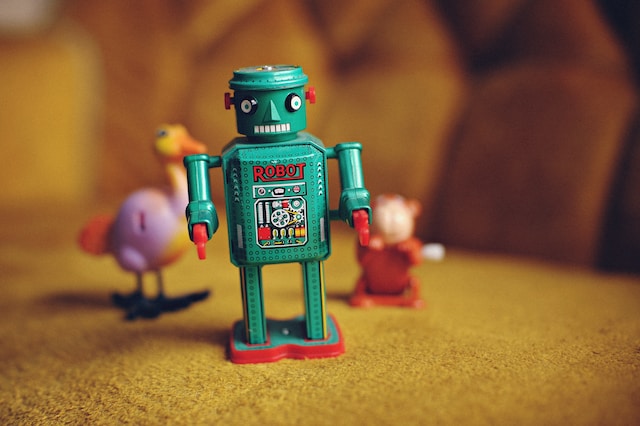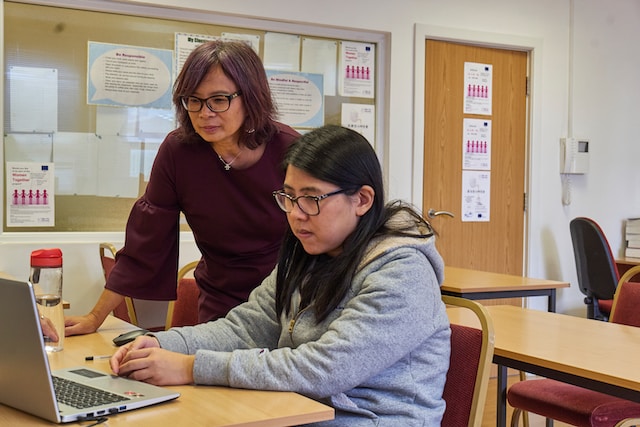What is your perception of artificial intelligence (AI)? Since AI emerged, people have had different beliefs and assumptions, which were shocking. It has come to replace human resources, but as time passes, people have learned that AI can never replace them. It needs humans to work better, and people have come to terms with its existence as it is applied in many industries.
AI is rapidly transforming college education as well. It has revolutionized the education sector by offering innovative ways to personalize the learning experience and make it more engaging and effective. With AI, educators can now analyze student data, create customized learning plans, and deliver personalized feedback to scholars, enabling them to learn at their pace and level.
Thus, let’s explore how AI is transforming college education and how we learn.
Adaptive Learning
We are no longer in an era where a student understands learning material or not; we must carry on. Since the advent and advancement of technology in education, there has been more attention on learners’ comprehension.
With AI, adaptive learning is effectively utilized. The data collected and analyzed on students’ strengths and weaknesses are used to adjust learning material. The adjustments cover the pace, style, and difficulty level of learning materials to meet the needs of individual learners. This approach to learning is handy for students struggling with certain subjects or learning at a different pace than their peers.
The system can analyze student performance data and make real-time adjustments to the learning materials. For example, if a learner struggles with a concept, the AI can regulate the difficulty level of the questions or provide additional resources fostering understanding and smooth learning. By using adaptive learning techniques, AI is helping to ensure that all college students have access to high-quality education and can achieve their academic goals.
- Learn More: CoDeAI is an EU project that helps incorporate AI into higher education curricula by promoting simulation-based learning strategies. Visit their site and stay tuned with their activities.
Automated Grading
Having sat for an exam but must wait about two weeks for feedback. It is stressful waiting as well as time-consuming.
For example, public institutions have about 30-50 learners, meaning more time will be used to mark the exam instead of focusing on what matters, teaching. It’s tiresome for educators as they also have to prepare teaching materials.
But, with AI, instructors have the time to focus on the failing student by gathering data on the cause of their poor performance. AI does not only provide instant feedback on exam performance but also saves time for teachers. AI grading systems can also identify patterns in student responses, which can assist educators in identifying areas of weakness in learners and provide targeted instruction.
Virtual Assistants

How do you feel when you inquire about something and get an immediate response?
Virtual assistants, such as chatbots, help in providing immediate feedback to scholars. You may be used to Alexis, where you request it to turn off the lights or play music. Nowadays, there is virtual assistance in education, which offers students with immediate support and assistance.
For instance, if students need more help with a particular concept, they can ask the virtual assistant for help and receive immediate feedback. This helps students stay engaged and motivated, as they receive support when needed.
Virtual assistants can also provide learners with personalized recommendations for learning materials. By analyzing a student’s performance data, the virtual assistant can recommend supplementary resources or activities tailored to the student’s learning style and interests. This helps ensure students are engaged and always looking forward to learning more.
Gamification
What is more fun than working on your dreams while having fun? The use of gamification is an area where AI is having a significant impact on education. It refers to using game-like elements to make learning more engaging and interactive and facilitate the development of critical thinking skills.
What makes games more rewarding and wanting to continue playing is that there is something to achieve at every level. Therefore, games can adapt to the student’s understanding level and offer real-time feedback. Besides, AI-powered games can also track student progress and provide personalized recommendations for improvement.
- Read More: Maximus Platform: Testing Results and Future Development Plans – Learn about the MAXIMUS platform and how it can help gamify learning in a classroom.
Predictive Analytics
Do you know what the future has in store for you? No one knows, but you can predict some things, like academic performance, depending on your regular results. With predictive analytics algorithms, an expert in statistics and now AI can analyze student data and identify patterns that can help predict future performance. Besides, based on your performance, understanding, and commitment, it is easy to conclude your future results.
Predictive analytic information can assist in creating targeted interventions to help students at risk of falling behind, thus, preventing failure and promoting room for improvement. Predictive analytics can also help learning institutions make data-driven decisions to improve student outcomes.
Personalized Learning

People prefer online and AI learning to traditional learning because it focuses on individual needs. AI can personalize learning experiences for individual students as it can identify the areas that need more attention.
Furthermore, educators can collect and analyze data about learner performance, including their strengths, weaknesses, and learning styles. Depending on this data, AI algorithms can create personalized learning paths for each student.
For instance, if a student is struggling with a particular concept in math, they can use a free AI math solver like Mathful. It can provide additional resources and support to help them master the material. This is also observed in education sites like Homeworkdoer.org, where tutors work hand-in-hand with learners to provide more content and support, promoting a better understanding of learning material.
By delivering personalized learning experiences, AI is helping to ensure that apprentices can learn at their pace and achieve their full potential. This improves learners’ engagement, focus, and motivation, promoting more understanding.
Improved Instructor Efficiency
AI is beneficial not only to learners but also to teaching faculty. Educators can automate time-consuming tasks like grading assignments and creating lesson plans. It is helping teachers spend more time working one-on-one with students, providing personalized support and guidance.
By automating routine tasks, AI is helping to improve teacher efficiency and allowing them to focus on what they do best – teaching. Besides, it also helps instructors have free time to focus on themselves and rest enough, preventing burnout and stress.
Improved Accessibility
With AI, education is accessible to learners with disabilities. AI-powered tools like text-to-speech and speech-to-text software can help novices with visual impairments or learning disabilities access educational materials.
Furthermore, AI can provide real-time translations for students who speak different languages, helping to break down language barriers and ensure that all students have access to high-quality education. AI offer inclusive college education to all people interested in pursuing their academic dreams.
Conclusion
We have yet to experience what technology can do, so we should expect more and be ready to embrace the changes. Change is inevitable; not all new things are bad.
For example, the fear of AI in our lives spreads like wildfire, and people are against it. But, with the taste of what this technology can do, we have learned to live with it. Besides, it has had a significant transformation in education, where it has made things more simplified and accessible.
Comparing the traditional and current education systems, we are making great improvements and moving on the right path. Now education is not all about completing the syllabus but leaving a mark on students’ lives.
Therefore, as the use of AI in education grows, we can expect to see even more innovative solutions to improve learning outcomes and enhance the educational experience.

